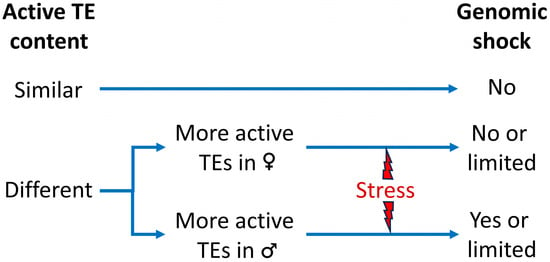Epigenetic Control in Plants
A topical collection in Epigenomes (ISSN 2075-4655).
Viewed by 24991Editor
Interests: development; sexual and asexual reproduction; genomics
Special Issues, Collections and Topics in MDPI journals
Topical Collection Information
Dear Colleagues,
Plants are sessile organisms with the capacity to respond to a varying environment throughout their lives. This capability is mediated through the moderation of gene expression without change to DNA sequence, a phenomenon known as epigenetics. Epigenetic mechanisms thereby mediate developmental progression of an organism and also the resilience to accommodate for change. Thus, epigenetic regulation in plants can be mediated in several ways, most notably mi RNA- and siRNA-based systems, histone modification and DNA methylation.
On a global scale methylation accumulates during somatic development, although external stimuli can cause either the methylation or demethylation of specific sites. About a third of plant genes are methylated at maturity but meiosis acts as a clearing house for methylation, with only a few methylated sites surviving through to the next generation. Atypical methylation can cause developmental or physiological anomalies.
The aim of this Topic Collection is to bring together a set of reviews and research articles on the role of epigenetic regulation in plants during sexual and asexual reproduction, development, and evolution.
Dr. Vladimir Brukhin
Collection Editor
Manuscript Submission Information
Manuscripts should be submitted online at www.mdpi.com by registering and logging in to this website. Once you are registered, click here to go to the submission form. Manuscripts can be submitted until the deadline. All submissions that pass pre-check are peer-reviewed. Accepted papers will be published continuously in the journal (as soon as accepted) and will be listed together on the collection website. Research articles, review articles as well as short communications are invited. For planned papers, a title and short abstract (about 100 words) can be sent to the Editorial Office for announcement on this website.
Submitted manuscripts should not have been published previously, nor be under consideration for publication elsewhere (except conference proceedings papers). All manuscripts are thoroughly refereed through a single-blind peer-review process. A guide for authors and other relevant information for submission of manuscripts is available on the Instructions for Authors page. Epigenomes is an international peer-reviewed open access quarterly journal published by MDPI.
Please visit the Instructions for Authors page before submitting a manuscript. The Article Processing Charge (APC) for publication in this open access journal is 1600 CHF (Swiss Francs). Submitted papers should be well formatted and use good English. Authors may use MDPI's English editing service prior to publication or during author revisions.
Keywords
- epigenetics
- methylation
- RNA interference
- chromatin remodeling
- plant reproduction
- development













